See also
- Eugene Myers (born 1953), American computer scientist
- Eugene Mayer (1892–1918), American football player
Eugene Meyer may refer to:
Robert or Bob Morris may refer to:
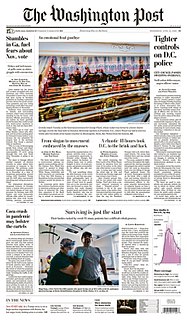
The Washington Post is an American daily newspaper published in Washington, D.C. It is the most-widely circulated newspaper within the Washington metropolitan area, and has a large national audience. Daily broadsheet editions are printed for D.C., Maryland, and Virginia.
Michael Myers or Mike M(e)yers may refer to:
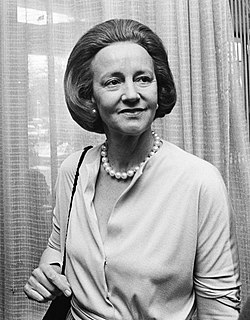
Katharine Meyer Graham was an American publisher. She led her family's newspaper, The Washington Post, from 1963 to 1991. Graham presided over the paper as it reported on the Watergate scandal, which eventually led to the resignation of President Richard Nixon. She was the first twentieth century female publisher of a major American newspaper. Graham's memoir, Personal History, won the Pulitzer Prize in 1998.
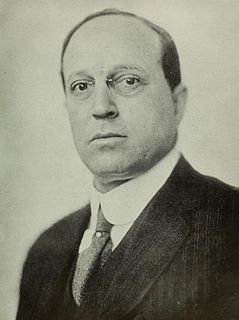
Eugene Isaac Meyer was an American financier, public official, and newspaper publisher. He published The Washington Post from 1933 to 1946, and the paper stayed in his family throughout the rest of the 20th century. He served as Chairman of the Federal Reserve from 1930 to 1933 and was the first President of the World Bank Group.
The War Finance Corporation was a government corporation in the United States created to give financial support to industries essential for World War I, and to banking institutions that aided such industries. It continued to give support to various efforts during the interwar period. The corporation was created by a Congressional act of April 5, 1918, and abolished on July 1, 1939.
Merlo John Pusey was an American biographer and editorial writer. He won the 1952 Pulitzer Prize for Biography or Autobiography and the 1952 Bancroft Prize for his 1951 biography of U.S. Chief Justice Charles Evans Hughes.
Agnes Meyer may refer to:
The surname Bush is an English surname, derived from either the Old English word "busc" or the Old Norse "buskr," both of which mean "bush," a shrub.
Hilgard may refer to:
The surname Meyer is an English, Dutch, German, and Jewish surname. Many branches of the Meyer(s) family trace their origins to ancient Anglo-Saxon culture. The surname Meyer is an occupational-heredity surname that can be derived from the Old English name "Maire", meaning "Mayor", or an officer in charge of legal matters. The name can also be derived from the German word "meiger", meaning "Mayor"; the name likely traces its origins to a wealthy landholder. There are various names that are connected by cognation in many instances, such as Myer, Meyr, Meier, Meijer, Mayer, Maier, Mayr, and Mair). Among German Jews, the surname "Meyer" can sometimes be converged with the similar sounding Hebrew name "Meir", which means "one who shines" in Hebrew.

Florence Meyer Blumenthal (1875–1930) was an American philanthropist who founded the Fondation franco-américaine Florence Blumenthal, which awarded the Prix Blumenthal from 1919-1954 to painters, sculptors, decorators, engravers, writers, and musicians — to promote Franco- American relations.
Andrew Saks was an American businessman known as the founder of Saks Fifth Avenue.
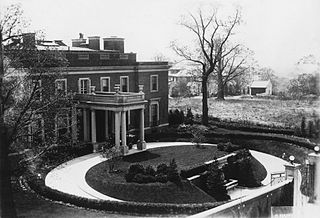
The White-Meyer House is a historic house, located at 1624 Crescent Place, Northwest, Washington, D.C. designed by American architect John Russell Pope and built by order of American ambassador Henry White. For several years, the house was rented to Eugene Meyer, who then bought it in 1934. It was bought by non-profit organization Meridian International Center in 1987.
Mark Meyer may refer to:

Agnes Elizabeth Ernst Meyer was an American journalist, philanthropist, civil rights activist, and art patron. Throughout her life, Meyer was engaged with intellectuals, artists, and writers from around the world. Meyer's marriage to the financier Eugene Meyer, son of Marc Eugene Meyer, provided her with wealth and status that enabled her to influence national policy, such as social welfare programs. Meyer lobbied for the creation of the Department of Health, Education and Welfare and for the U.S. government to provide federal aid to states for education. President Lyndon Johnson credited Meyer for building public support for the Elementary and Secondary Education Act of 1965, which for the first time directed federal assistance towards school districts that served children from low-income families. She advocated for equal employment and educational opportunities, regardless of race. Meyer's investigative journalism showed the inequities of racial segregation in schools in the Washington metropolitan area.
Marc Eugene Meyer (1842–1925) was an American businessman who served as president of Lazard Frères in the United States.
Vesco is a surname and can refer to:

A colossal bust of Abraham Lincoln was made by Gutzon Borglum and completed in 1908. The original marble sculpture is installed in the United States Capitol crypt, in Washington, D.C. Copies cast in bronze are installed in several other locations, including the Lincoln Tomb in Springfield, Illinois.
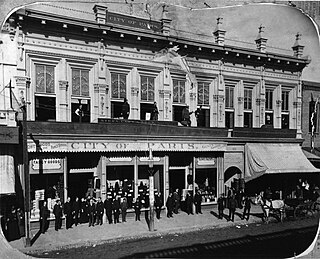
City of Paris was a dry goods store and eventually Los Angeles' first department store, operating from the 1850s through 1897, first as Lazard & Kremer Co., then Lazard & Wolfskill Co., then S. Lazard & Co., then with the store name City of Paris operated by Eugene Meyer & Co., then by Stern, Cahn & Loeb. It should not be confused with the much more famous City of Paris store of San Francisco, or the Ville de Paris department store of Los Angeles, of Mr. A. Fusenot, which was a spinoff of San Francisco's "City of Paris".